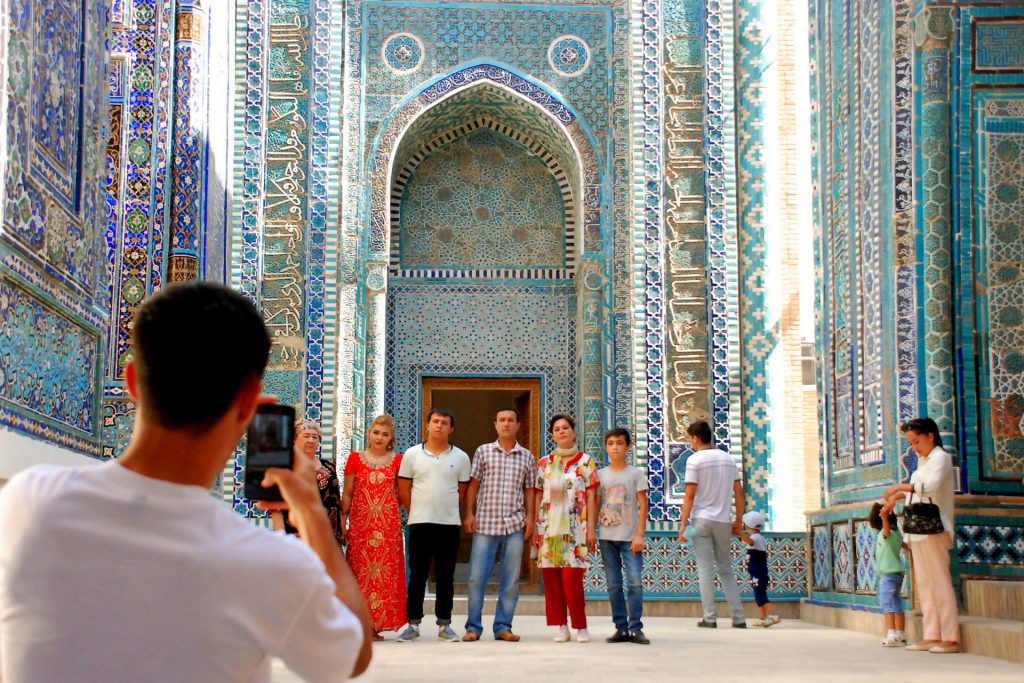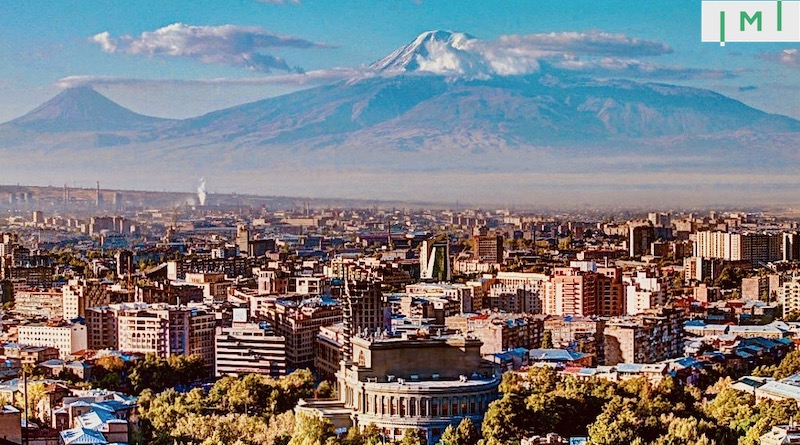The CBI Wave Gathering Steam in Central Asia and the Caucasus
By contributor
The ex-Soviet republics look set to cash in on the Ukraine war by offering exiled Russians with deep pockets a quick fix. Other regional programs are likely to follow.
Uzbekistan: A Hard Sell

Much of the investment migration world was taken aback after catching wind of the $1 million price tag Uzbekistan plans on attaching to its purported citizenship-by-investment scheme. Truth be told, such an announcement is not all that surprising upon scratching beneath the surface. Given how inelastic demand for a foreign passport is among wealthy Russians right now, the Uzbeks probably figured they might as well go for broke by charging their target audience the maximum they can possibly get away with. Equally astonishing is the notion that a travel document with a dismal mobility score and no conceivable privileges – consular or otherwise – could be up for grabs soon.
We are talking about an authoritarian regime whose citizens needed exit permits to leave their country up until as recently as three years ago. Having been closed off to the outside world for over two decades, very little emphasis was placed on establishing visa waivers with strategic partners beyond the Commonwealth of Independent States (CIS), Southeast Asia, and Turkey. As such, Uzbek nationals currently enjoy unfettered [ed.: not counting visa-on-arrival or electronic travel authorization) access to just 25 countries – most of which are concentrated in the same geography.
Regarding connectivity, the capital Tashkent is, by no means, an aviation hub. Outbound travel is heavily skewed towards Russia, and direct flights to other destinations of significance are fairly limited in number and attract low passenger traffic.
Off-the-cuff statements by senior politicians on launching citizenship or residency programs usually don’t amount to much and industry experts should take it with a large grain of salt. So far, all we know is the astronomical sum Uzbekistan hopes to command in exchange for citizenship. There has been no mention yet of whether the stipulated amount constitutes an investment, a contribution, or a combination of the two. Furthermore, it is unclear if any physical presence or language requirement will be imposed on principal applicants.
By the looks of it, this initiative has not been fully thought through and thereby appears inundated with grey areas. It might just be a last-ditch solution for desperate Russians to circumvent sanctions and evade military conscription, albeit at a hefty outlay.
Armenia throwing its hat in the ring

A more refined and actionable option that looks set to grace the market imminently is Armenia’s simplified pathway to citizenship. Besides the eligibility criteria being explicitly outlined and long-drawn discussions held at the ministerial level on establishing a fast-track naturalization mechanism for foreign investors, the program itself is competitively priced. All it entails is a minimum donation of $150,000 to a scientific or academic foundation. Alternatively, one can qualify by plowing the same amount into government bonds, real estate, a private company, or a venture capital fund. The reasonable asking price for a passport on the up-and-up suggests that its authorities mean business and are seeking to press ahead with this initiative in earnest.
By virtue of being the first country to adopt Christianity as its official religion, Armenia shares a historical affinity with Europe while commanding a great deal of respect from the international community at large for its rich, millennia-old heritage. The number of places its citizens can visit without restrictions (66) does not do justice to Armenia’s 21st-century success story. EU leaders – past and present alike – have repeatedly vouched for Armenia’s inclusion in the list of Annex II states afforded visa-free travel to Schengen. At the same time, Armenians are welcomed without visas by the likes of Russia, China, and Iran – all of whom happen to be staunch adversaries of the West.
The CBI offering has been structured to ensure that prospective clients have skin in the game and bona fide links with the country over and above merely procuring second citizenship. There is a broad scope of sectors they can invest in or contribute to, from information technology to arts and culture to healthcare. The multifaceted nature of this scheme will encourage applicants to painstakingly weigh up the options that could potentially accrue healthy yields as opposed to blindly parting ways with surplus funds for a booklet. Unlike other rival programs, this one does not solely focus on high-net-worth individuals (HNWIs). Accomplished professionals with at least 20 years of experience in their respective fields have been factored in and stand to acquire nationality on a so-called “exceptional” basis.
Should the program come to fruition, it is unlikely to ruffle any feathers in Brussels. For starters, the lengthy seven to ten-year holding period will bind this new wave of investors to their adopted country, whereas the proceeds generated are to be used, by and large, for socioeconomic advancement. Yerevan has become a breeding ground for tech startups and entrepreneurship. Raising capital organically will serve to turbocharge the innovation drive and pave the way for further job creation. Any resistance to this undertaking is bound to come from within. The Republic of Armenia is among the most ethnically homogeneous of all the ex-USSR states. Its proud and close-knit natives will almost certainly be apprehensive about their already sparsely populated nation faced with the prospect of a demographic rebalancing.
Schengen is no longer the Holy Grail
Armenia’s and Uzbekistan’s dipping their toes in the RCBI circuit could trigger a chain reaction across the post-Soviet space and encourage their neighbors to vie for a piece of the action. A couple of months ago, Kazakhstan tabled plans to grant anyone who invests $300,000 in the country long-term residence permits of up to ten years. Though this move is closely modelled on UAE’s existing Golden Visa, it nonetheless speaks volumes of the expat-friendly trajectory erstwhile communist states are on. Even the tiny Central Asian republics Kyrgyzstan and Tajikistan may fancy their chances of roping in greater foreign direct investment via expedited citizenship as the war shows no sign of subsiding anytime soon, and they already host a sizeable ethnic Russian minority.
Georgia has been another go-to sanctuary for Russian émigrés since the invasion took place. Thanks to its open-door immigration policy, the Georgian economy has undergone a mini-boom of late whilst the rest of Europe is bleeding from the fallout with Russia. This unexpected phenomenon should encourage Tbilisi to do some serious soul-searching and formalize its existing residence program that has historically flown under the radar.
Second citizenship has become highly sought-after throughout the Global South. Other metrics, such as liveability, political stability, and fiscal incentives, are now taking precedence over mobility alone. Investment migration’s center of gravity looks set to shift toward the up-and-coming Eurasian region, provided the aforementioned nations play their cards right.
The European Council’s decision to fully rescind visa-free travel for ni-Vanuatu is only the tip of the iceberg as their lowbrow onslaught on the sale of citizenships continues. Its leaders are not going to content themselves with putting a spoke in the wheel of just one among several jurisdictions engaged in the same practice. The Caribbean quintet could be next in the firing line, not least since they also entertain naturalization in absentia. The “visa-free access to more than 150 nations” tagline that has long been the bedrock of their sales pitch now hangs in the balance.
Funnily enough, needing a visa to frequent the Schengen zone is a blessing in disguise for CBI countries: They do not run the risk of being cut back down to size by an external body with leverage over them and end up facing buyer’s remorse as a result.


